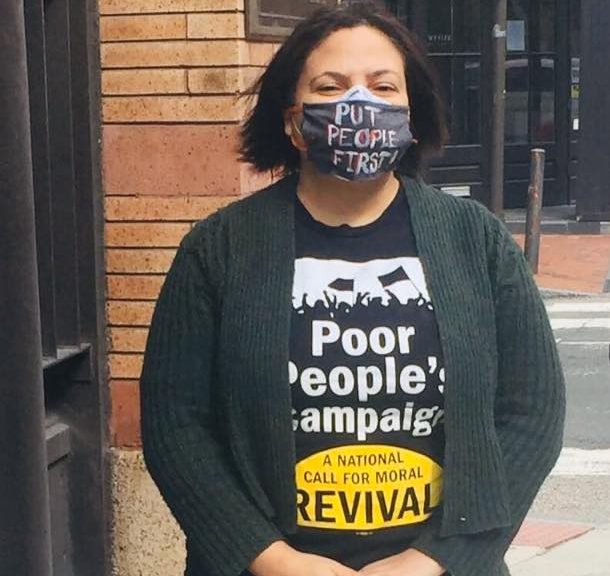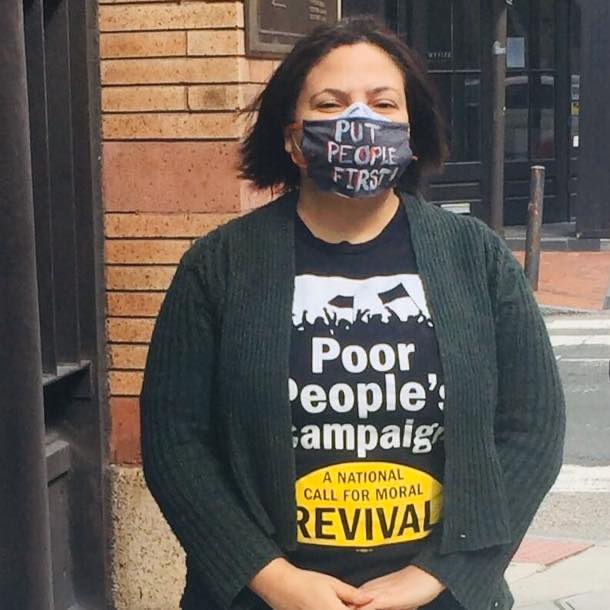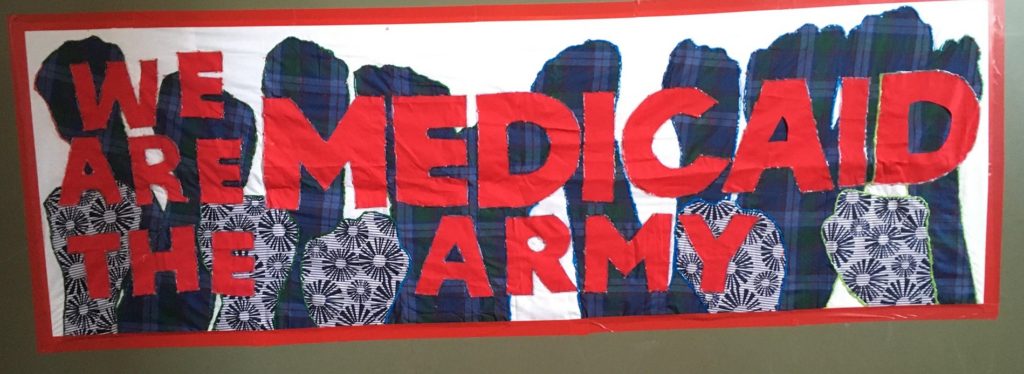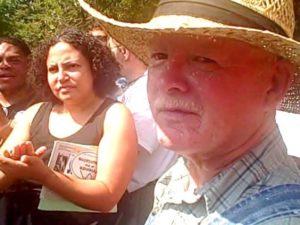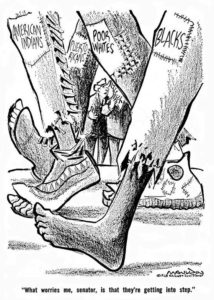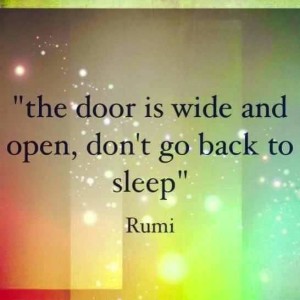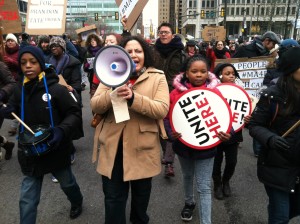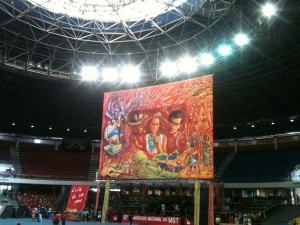The capitalists are in crisis. There hasn’t been this level of polarization within the capitalist class since the civil war. When the capitalists get the sniffles, we get long Covid. Their infighting will result in the increasing polarization of the working class as long as we are weaponized against each other instead of them. However, those who are clear on the true face of state power, which is that the state is a tool of the class that rules, can avoid being pitted against each other and instead build a movement to end poverty led by the poor – the only possible solution to the “polycrisis” bed that the capitalists have made. Faith in every single institution is breaking down – because those institutions have brought humanity to perpetual war and ecological collapse. We, the 140 million who are poor or near poor, don’t need pity, or charity. We need to know that we are the people who can find a way out of this mess because we are the first to wake up. The position of the poor and homeless today is the position of the so-called “middle class” tomorrow. We are at the forefront of understanding that there is no “going back” – any narrative that invokes the idea that we can go back (whether to the New Deal or to the post WWII “American Dream era”) is false. We must move forward, using all of the productive capacity of humanity to end poverty for all – everywhere. This is now possible for the first time in human history, and it’s about 3,000 billionaires up against the interests of 8 billion of us.
- Fascism is a cruel right-wing break with the existing social, political and economic order. FALSE
- The F word is going to be all the rage in 2025 and certainly for the next 4 years. But remember, we live in an anti-intellectual and ahistorical culture where the working class is purposefully miseducated. Let’s not throw this word around while misunderstanding its history and what it really means.
- Fascism can be described as an “open terrorist dictatorship of finance capital”. It is not the exclusive territory of one of the parties of Wall Street or the other. It is not embodied in a single person. It is an outgrowth of capitalist democracy in decay. It’s a solution for the crisis of the capitalist class when their version of limited “democracy” for the rest of us is inadequate to ensure their profit-making. Don’t perpetuate distracting falsehoods about fascism. Fascism and Social Revolution by R. Palme Dutt is a highly recommended work on this topic.
- The working class has nothing to complain about – everything is fine! FALSE

- Please don’t share memes about how great the stock market is, or how busy stores are, to reinforce ruling class narratives that the working class is doing okay and has nothing to complain about. Wages have been practically stagnant for the last 50 years. We are mad, and we should be! Fighting mad – not at other workers – from anywhere in the world, but at a system that controls our lives and labor and then denies us all the basic necessities of life, because our wages aren’t enough to buy them. That’s why 800 people are dying every day from poverty in the richest country that’s ever existed in the history of the world.
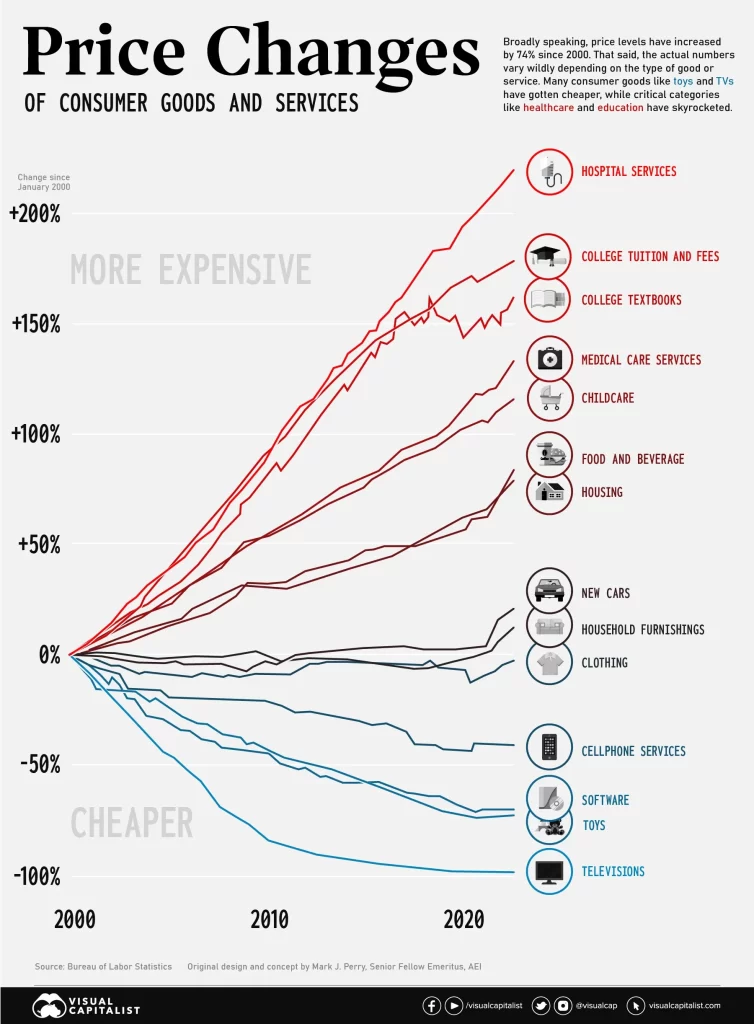
So with that being said, anyone who is part of or who wants freedom for the working class should JUST SAY NO to things like this:
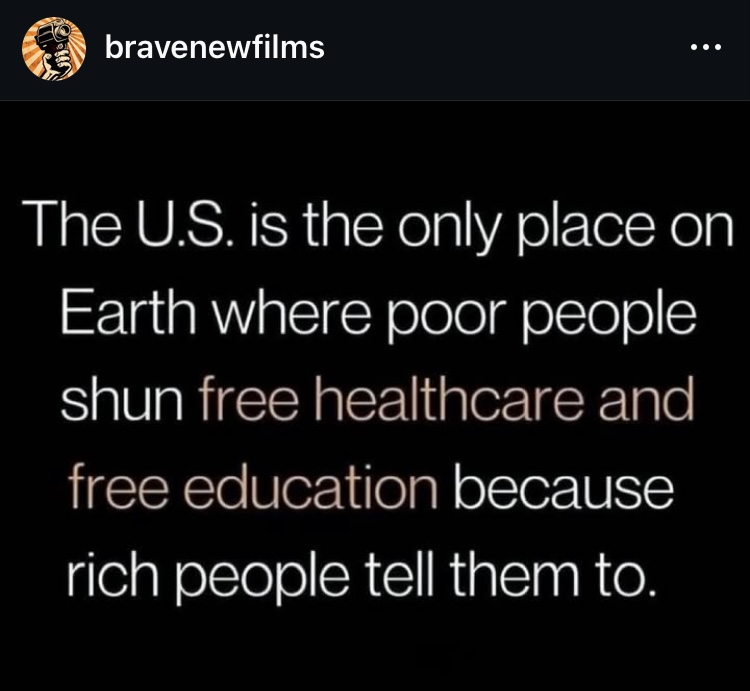
3. Well, it’s all fine and good to talk about ending poverty, but to meet everyone’s needs or bring the entire world to a decent standard of living we would need additional planets, or there will be total ecological collapse. It’s just not possible! FALSE
- The world that global capital has made is one in which technological capability and productive capacity is not used to meet human needs, but to produce unlimited commodities for the market. This anarchistic production for unlimited drive for profit results in war and devastation for people and the planet. The technology and productive capacity we have today is the result of the creative genius of hundreds of years of working class labor and millions of workers all over the world who deserve our undying love and respect. Yet, because the working class doesn’t own and control what we’ve produced, its used to emiserate and kill us. This excellent research shows that economics planned around human needs would drastically reduce unnecessary over-production and production for commodity exchange. Living standards can be raised for all people when we leave behind the insanity of anarchic production for profit.
4. Okay, but after all there is a Global North and Global South and poverty in the US is nothing like poverty elsewhere. Our role is simply to be “allies”. FALSE
- As Jae Hubay of the Ohio Nonviolent Medicaid Army has brilliantly shown in these visualizations, the poor of the U.S. are much closer in position to the global poor than to the billionaire class that is holding the planet hostage.



5. But with this new administration coming in, I can’t even! Life is over. We’re about to face never-before-seen attacks. FALSE
The attacks that we’re about to see are a CONTINUATION of the war on the poor that has been intensifying over the last 50 years and has reached new heights in the “Great Recession” of 2008 and since the Covid 19 pandemic. Since April 1, 2023, more than 25 million Americans have lost their healthcare. The Supreme Court has now made it legal to criminalize us for not being able to afford housing. Deportations under Biden just last year surpassed those during Trump’s first term in office. Don’t fall into the trap of being weaponized against other working class people because of the polarization in the ruling class.
I could go on… I thought about adding a 6 or 7 but 5 is a good number for now. Bonus confusion to leave behind is that acts of individuals are enough to save the day. They are not. The ruling class has the power of the “pen (media), the purse (money) and the sword (military)” to quote Frederick Douglass. What we have is our numbers, and our numbers mean little without organization. Organization requires “intelligent and unselfish leadership” (W.E.B. Dubois). And leaders must be clear, committed, competent and connected. (Willie Baptist). So let’s get clear and let’s get organized!!
** Top image is unsold Tesla inventory, visible from space.

